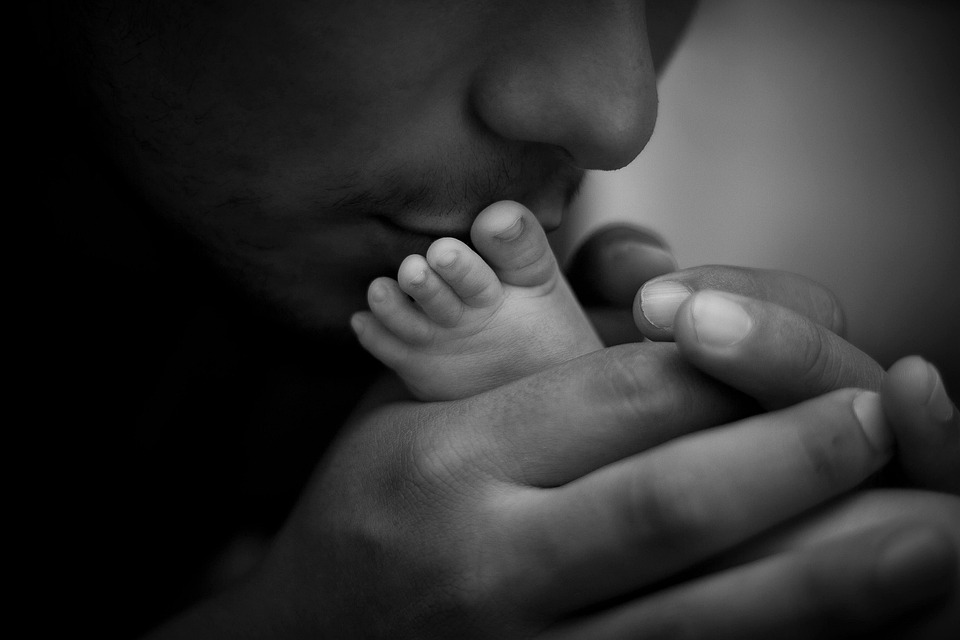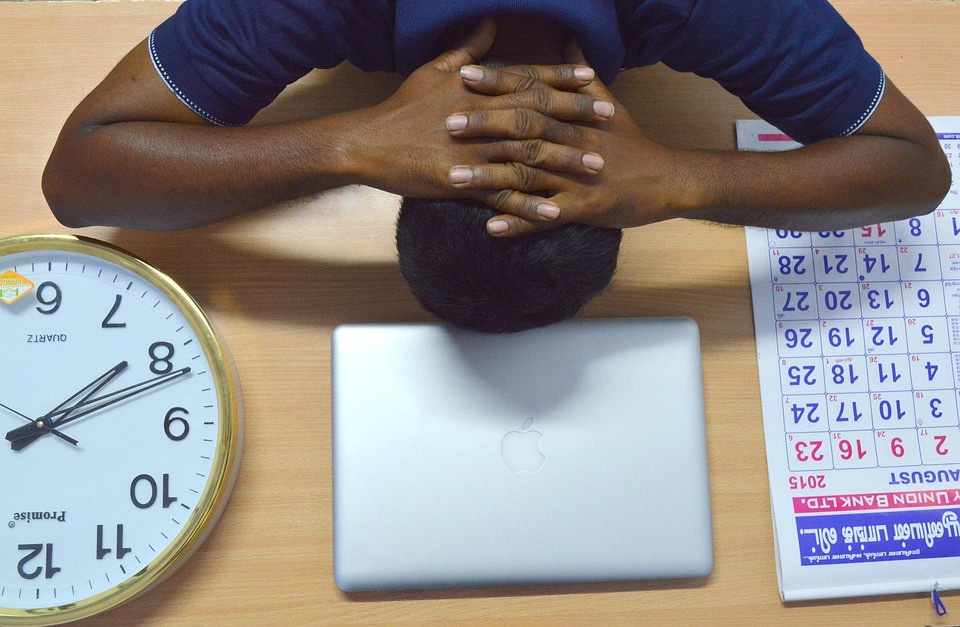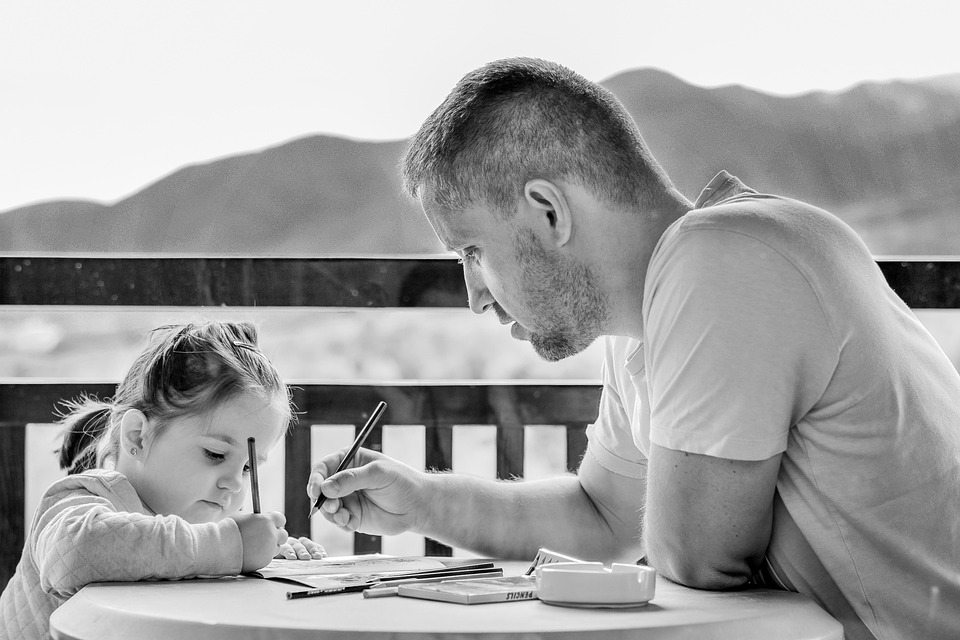What have your experiences of parental leave been like? What needs to happen to bring about changes for the better?
We would like this blog post that accompanies our comment piece on 'Listening to Fathers' to initiate a wider conversation around parenting and parental leave, and provide a space where fathers can share stories and compare experiences. We were contacted by many more fathers in supramolecular chemistry than we were expecting, and so, as well as including some of their words in our article, we wanted to use this associated blog post to share more extracts from their anonymised stories to begin that conversation. By collating their testimonies in this way, we hope this blog post will encourage men more widely to join in a dialogue about the interface between parenting and work, and reflect on their own experiences. This can be done either in response to this blog, or through social media channels. In particular, by understanding the barriers men face to becoming more involved in family life, or the benefits they gain from greater involvement, we hope to help future fathers reflect on how things could be better in terms of their own work-life balance.
Fatherhood is changing, as demonstrated by the widely different approaches to paternity and shared parental leave across the world. If the role of fathers as fully engaged members of the family continues to be more widely embraced, this could have very significant impacts on the wider STEM culture, which many consider to be broken.
We would like to thank everyone who responded to us, particularly Gareth Lloyd, Barry Blight, and Charlie McTernan who volunteered to be interviewed in depth and join the authorial team. We would also like to add that we and our respondents recognise that not all new parents are in father/mother couples, and not all children join a family through birth.

Fathers shared their desire to take parental leave, or to have longer periods of leave even when it was not allowed or encouraged:
“There is very little support for parental leave both from universities and funders. Especially for early-career researchers it is seen as a very dangerous game to take paternity leave as every month count towards that dreadful date when you’re too old to apply for all the establishment grants and ERC [European Research Council] money, and universities accuse you of “losing momentum” if you take paternity leave at an early career stage like mine. I know you (formally) can get extensions to for example ERC grants for paternity leave, but you get it exactly for the number of days actually absent from work and we all know that is not the true cost of taking leave or supporting a family”
“Myself and my partner initially discussed me taking 3 months leave or more. However, there seemed a complete lack of understanding within the university of how this would work, or who was responsible for organising it, and no one was willing to accept responsibility. I was too worried that the lack of cover or support would see me either having to work through leave, or my students facing hardship. In the end we instead opted for one month at the start, in parallel with my wife, so I could support her and the baby in the first weeks when its most difficult. And then we had also booked one month at 6 months, with the intention that I could then take care of the baby while my wife went back to work for a while. However, after the trouble of making these arrangements, we ended up cancelling the second period of leave before it started. It just did not feel possible to take it. We were both disappointed”
There was a lot of concern the about negative career impact of taking leave:
“The career path is still hostile to those who have children earlier on at PhD or PDRA level. It shouldn’t be the case that people have to put having a family on hold for so long just because the support structures from their institutions are so crap that they believe having children will seriously harm their career chances, but I think that is still happening”
“I could have taken leave or worked less during those early years but I would not be employed. Several of my male colleagues were in exactly the same situation”

“I regret not taking longer but certainly feel that with the first child it would have seriously harmed my career both in the short term (it would definitely have been a problem with my boss at the time) and in the longer term. Even so, I wish I had spent more time at home as a new family, with both children. When the second arrived and we moved, I was immersed into a new work life while my wife spent quite a lot of time alone with a three-year-old and a baby in a new city – this was grossly unfair on her and a direct consequence of our joint decision for me to pursue an academic career. It didn’t feel as though there were any other options at the time.
We specifically asked about differences in attitudes for fathers taking leave and caring responsibilities compared with women:
“There is a lack of understanding, cover, or support for either. In terms of attitude and willingness, yes. There was perhaps more of an attitude of “why would you need or want to do this?” and a lack of any precedent. When I spoke to HR about it, the first thing they asked me was if my wife worked at the university or not (she did not, but that seemed to change their thinking – I guess if we both work in the same place, then it doesn’t matter who takes the leave, but if she works somewhere else then maybe they would prefer her to take the leave than me?). It was explained to me multiple times that any time I took off would mean that my wife would get less. Each time there were connotations in their manner to suggest it was unusual for me to be taking leave – and that it was perhaps selfish and unfair to my wife, as I would be robbing her of the leave she deserved”
“The attitudes of people to parental leave for fathers vs mothers have been massively different. I was expected to go back as soon as I could; there was no expectation that I might possibly want to take a longer parental leave. Having said that, the expectation on women was that they would take longer but still not the full year, partly because “if they were serious about their careers they’d come back sooner” (to paraphrase something I heard numerous times). For anyone in academia having children it also always felt that the expectation was that they should wait until they had a secure position – postdocs and PhD students having children was not the done thing if they cared about their work. Thankfully, I think those attitudes are changing and have changed for the better. I noticed it more among my non-academic friends first, when some of them had children around the same time as we did and the fathers took multiple months of leave to be with their families. This seems to have become more acceptable than it was, although academia is still lagging behind”

There was gratitude for the ways things seem to be changing for the better, and recognition that there is still some way to go. Many asked for parental leave more akin to the Nordic countries, with more leave, more options for shared parental leave, and more support for researchers at all career stages:
“It should be a standard policy that both parents are automatically given leave of equal length and are permitted to use that in any way possible i.e. can be combined, pooled, split however works best for those parents. For any parent taking leave there should be bridge funding established to help soften the blow to existing grants or even to bring on a postdoc / researcher to help run and maintain their research program throughout the duration of the leave”
“In any other job, parental cover is provided. In academia, workloads simply back up - making a return to work very challenging, and impacting others in the team. It also takes a long time to unpick bad changes to procedures that slipped through!”
“Carving out a niche as a working father alongside all the other aspects of the job felt an additional responsibility and one where there simply wasn’t a huge amount of work-based support”
“In general, academia is really poorly compatible with a family lifestyle (as we all know!) and I think a complete overhaul of the academic system is really what is needed to support a more family-friendly lifestyle. Most importantly we need to find a way to assign resources (like funding) that is not so extremely focused on productivity. I’m beating a dead horse here I know - we all talk about this all the time. But how am I supposed to compete with colleagues without small children that literally can – and will – work something like seven more effective hours per day than I can do? I made the promise to my wife and son that I would be home for dinner and then don’t do any work until my son’s bedtime. I’ve kept that promise to date, but with the cost that I’m having to work most nights and not getting enough sleep. And this is not even me being particularly ambitious – I’m just trying to be a good mentor to my group members, get the research and admin done and prepare my teaching so the students actually learn something from my classes. My productivity is pretty OK overall, but nowhere close to where many other people in my field are at. I have come to terms with that my life and career will be like that though – family is more important to me than being the most successful scientist in the world. But still – it would be nice if the funders recognized that many strong and creative scientists have chosen to have a family and that it is natural that the productivity goes down in such a case (at least if one takes an active part in that family)”
What have your experiences of parental leave been like? What needs to happen to bring about changes for the better?
This blog post is intended to open up the conversation beyond what we were able to cover in our article, and find a way to incorporate and share others’ stories. We would love for others to join in and share more stories about their experiences of fatherhood. Please do comment and add your thoughts, your stories, and your experiences of the interfaces between work and parenting.
Follow the Topic
-
Nature Reviews Chemistry

This journal aims to cover both the traditional core subjects of the field — organic, inorganic, physical and analytical chemistry — while also providing insight to non-specialists where chemistry is a significant component of interdisciplinary research.
Please sign in or register for FREE
If you are a registered user on Research Communities by Springer Nature, please sign in
I had parental leave in 1990, where my wife and I worked alternating days, both on 50% leave, for half a year. Not much paternal leave by todays standard in Sweden, but it was a great experience, highly recommended. In communities such as Scandinavia where parental leave is expected, and protected by law, this does not seem to have a negative career impact.